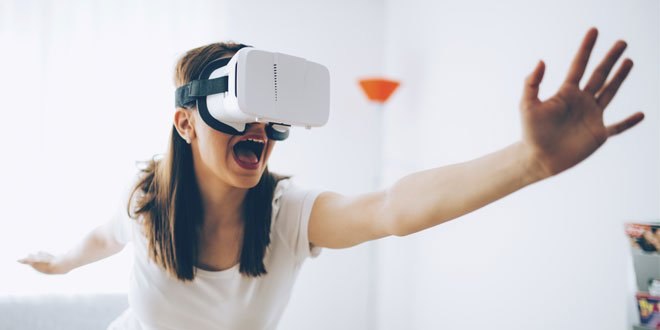Poised for growth, virtual reality awareness and adoption on the upswing, though affordability is a concern
Commencing with Facebook’s acquisition of Oculus in 2014 and continuing with the recent introduction of products by Samsung, PlayStation, and Microsoft, it appears that virtual reality is coming of age. As forecasted by Digi-Capital, the augmented reality (AR) / virtual reality (VR) market will reach approximately $120 billion by 2020.
According to the YouGov Virtual Reality Syndicated Tracking Study, which gauges consumer perceptions, attitudes, and purchase intentions towards AR / VR, the future is indeed now, with awareness of VR and AR at 90% and 55%, respectively. Furthermore, 65% of those who have tried VR are enthusiastic about its present and future, and only 7% of those who have tried or bought VR equipment claim that the hype remains ahead of the actual experience.
When people think of VR, they most commonly associate it with gaming, an assumption that appears valid, given that 44% of Americans who own VR hardware also own VR games and 37% of Americans think that gaming will be the fastest VR growth sector in the next three years. That said, YouGov’s research also indicates that Americans are interested in the application of VR in other areas, including virtual training and education (46%) and virtual conversations with family and friends (45%).
Those who already own or use VR equipment and applications are most likely to purchase a console or computer optimized for VR (30% for each), followed by goggles / headsets (25%), and VR accessories (25%) over the next twelve months. This bodes well for the brands that are perceived as industry leaders, and to whom consumers are most likely to turn for their next purchase, a group that includes Google (84%), Samsung (71%), Microsoft (64%) and Sony PlayStation (63%).
Despite the potential for the VR market, there is one obstacle that may reduce interest in adoption - price. 56% of Americans claim that VR devices and equipment are too expensive, a percentage almost equal to the next three potential hurdles combined: concern that VR leads to isolation (23%), that there are not enough good games (20%), and that the effects are not realistic (17%). The risk of motion sickness and fatigue also checked in at 17%.










